One of the best methods to increase our immune system is to take care of hygiene. Equally important is to make sure we eat and drink healthy stuff, like organic produce and clean water.
Sometimes our body demands extra, so the question is: does Vitamin C boost your immune system?
Linus Pauling is the only scientist so far that received 2 Nobel prizes in 2 different areas (Chemistry and Peace) not been shared with somebody else. In 1970 he wrote Vitamin C, the Common Cold and the Flu. In this book, he emphasizes the importance of Vitamin C. Grams of Vitamin C.
Some of the links are affiliate links. As an affiliate associate, we earn a commission when you purchase any of the products offered through the shared links at no extra cost for you. This helps us maintain this website.
Table of contents
- 1 Vitamin C boost for our immune system
- 2 Recommended versus Exceptional
- 3 Why should we take so much vitamin C?
- 4 Will Vitamin C boost your Immune System?
- 5 Can’t I get enough Vitamin C by eating oranges?
- 6 Supplements complement food, they don’t replace it
- 7 15+, at times unexpected, Benefits of Vitamin C
- 8 Can Vitamin C have negative effects?
- 9 The Key to a Healthy Immune System
- 10 Environmental awareness
Vitamin C boost for our immune system
Nobel prize winner Linus Pauling advises taking a lot of vitamin C if our immune system can use a boost. For example, if we feel the flu, have a cold, or if there is a virus that can attack our lungs.
Recommended versus Exceptional
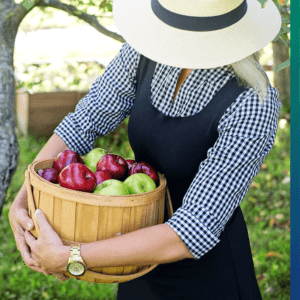
Every country has a food agency that hands out lots of recommendations. The recommendations are based on averages. Averages of quantities they know will be sufficient. But also averages of quantities they suspect will be most followed.
In the USA for instance the recommended daily quantity for adults is 65 to 90 milligrams. The Dutch food agency recommends 70 mg. In the UK the recommended daily amount is 40 mg.
An orange contains about 50 mg. to give you some kind of comparison.
Pauling recommends 3 gr a day, that is 3000 mg!
Why should we take so much vitamin C?
Pauling substantiates his recommendation by looking at the world of flora and fauna. Humans are probably the only living creature whose bodies can’t produce Vitamin C. Most animals and all plants can. We have lost that ability in ancient times.
Yet Vitamin C protects us against harmful influences like stress, air pollution and several infections.
Robert Cathcart, an orthomolecular doctor, prescribed his patients as much Vitamin C as their bodies could handle. He called that the principle of intestinal tolerance. You’ll get diarrhoea from too much Vitamin C intake.
By prescribing grams of the vitamin to swallow every hour, he would quickly find out how much that patient could handle. As soon as they would get diarrhoea, he knew what the right dose at that moment was.
Will Vitamin C boost your Immune System?
According to Pauling and Cathcart Vitamin C will boost your immune system substantially. They have tested that on their patients with ample results.
Nobody knows at this moment whether Vitamin C will help in the present pandemic*. But as long as you listen carefully to your body it won’t harm you to take any. We each respond to big amounts differently. But we also respond differently during the time. When we are healthy and not stressed, we need less than when we are ill or worrying.
So, increase the dose when you don’t feel too well up to the point your bowels begin to protest and maintain that dose until you feel better.
Can’t I get enough Vitamin C by eating oranges?
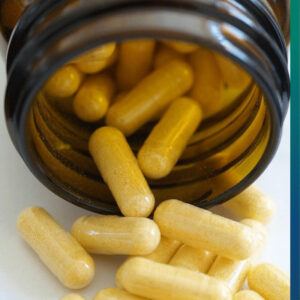
Calculating the numbers I mentioned above, you would have to eat 60 oranges a day. Wouldn’t that be boring? And time-consuming as well.
For a long time, I wasn’t too keen on supplements. I considered them a scam and thought I was OK by eating organic, healthy food. Which is not bad at all, of course.
But my yearly medical tests and orthomolecular specialists have convinced me that at times a body needs something extra. I am a huge advocate of the adage ‘food as medicine’, but I also know by now that at times food isn’t enough.
Supplements complement food, they don’t replace it
The advantage of supplements is you can pinpoint one specific substance. The advantage of healthy food is you get a lot of different vitamins and minerals inside your body.
Along with my vitamin capsules, I still eat oranges as well. Orange food has beta-carotene and potassium, which are a blessing for the way our skin looks.
Related: Orange Food is Good and Healthy Food
15+, at times unexpected, Benefits of Vitamin C
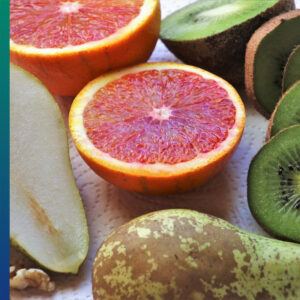
Doing the research for this article I discovered a lot of advantages of Vitamin C. Most are backed by research and testing, not all. As I have stated before, it is best to keep listening to your body. And to consult trusted sources.
In random order the benefits I found are:
- Supports the immune system;
- Helps to increase dietary iron absorption;
- Increases energy level;
- Lowers the risk of developing a urinary tract infection;
- May help reduce blood pressure;
- Lowers the risk of Alzheimer’s;
- Combats oxidative damage by free radicals (Free radicals are highly reactive molecules which, when produced in large quantities, are harmful to our body cells.);
- Protects skin from the sun;
- Helps the body to repair damaged tissue;
- Lowers the chance of developing cataracts;
- Increases bone density;
- Prevents muscle pain and contributes to muscle recovery after intensive sporting;
- Improves mood and libido;
- Improves blood circulation;
- Reduces wrinkles and prevents skin aging;
- Supports shiny and strong hair;
- Improves the strength of the nails.
Can Vitamin C have negative effects?
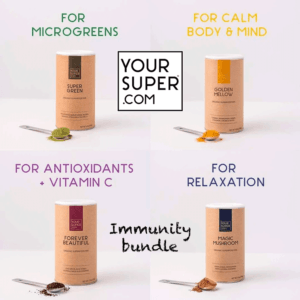
As said an excess of Vitamin C can cause diarrhoea. Some people get nauseous or have an upset stomach.
It seems that Vitamin C supplements can have a negative effect on people with hemochromatosis, which is excessive intestinal absorption of dietary iron. Vitamin C increases the absorption of iron, resulting in more stacking.
A shortage may cause scurvy. This rarely occurs in the Western world, but there are still areas in the world where people have a vitamin C deficiency. Someone with scurvy feels tired and has several physical signs like red spots and poor wound healing. But depression can also be a sign.
And vitamin C supplements can disturb the effect of medicines or treatments. That’s why it is essential to tell your doctor you are taking supplements when he or she is going to prescribe medication.
The Key to a Healthy Immune System
The present pandemic made me aware of a couple of things.
- Given the fact that most of the people that died were overweight, it is clear that a healthy lifestyle is really important;
- One of the things you can do is to increase your daily dose of Vitamin C;
- Other helpful supplements are Omega 3 fatty acids, vitamin D3, vitamin K2, magnesium, iodine, selenium, and zinc;
- All things are connected;
- To heal is important as soon as you get ill, but prevention has considerably more value;
- It’s important to take every measure possible to prevent getting ill, but sometimes one just has bad luck. You can construct your own life only to a certain extent.
Environmental awareness
In my view, part of the cause of the present crisis is the way we handle our health and our environment.
My contribution is that I only want to buy quality supplements and that I try as much as possible to avoid single-use plastic.
I only use Solgar supplements myself. Read my reason why in my review.
* Later addition: at present, more and more scientists value large amounts of Vitamin D as well.
How do you boost your immune system? Please let me know in the content box down below.
Disclaimer
This article is not medical advice. If you are ill and/or take medication, go to your GP or consult with a doctor who specializes in nutrition and lifestyle, such as an orthomolecular doctor.
I wrote this for inspirational and educational purposes and to increase your knowledge.

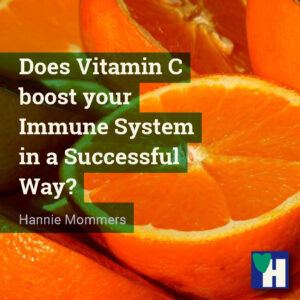
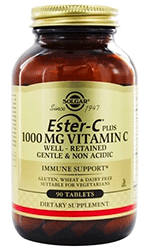
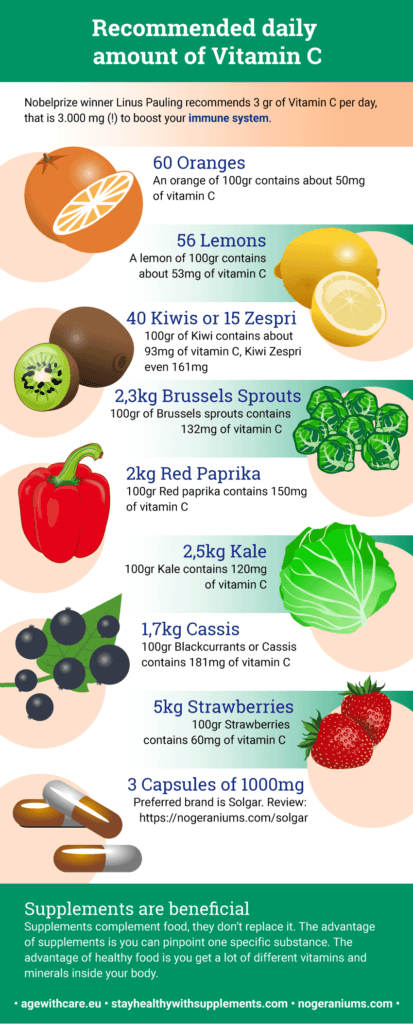
Informative post, you have summed up well about the importance of Vitamin C in boosting immune system…It is a strong antioxidant that can boost your blood antioxidant levels. This may help reduce the risk of chronic diseases like heart disease.
Thanks so much, Satish. Living a healthy lifestyle does a lot of good for several parts of your body, doesn’t it. It’s especially so necessary to look at our lifestyle in these times.
I think there is way too much emphasis on looking for a vaccine. Hardly any talk about medication and certainly not at healthy lifestyles. Which amazes me, because there is so much more to gain on that terrain.
Loved this article! I had no idea humans were just about the only living creatures that can’t produce vitamin C. Eating 60 oranges a day would be difficult, not to mention erosive to your enamel! Thanks for this information, I learned a lot!
Fantastic article Hannie, thanks for going so indepth and still written in a way one can understand.
Wonderfully insightful article. Although I would love to eat 60 oranges a day, that is probably not such a good idea. Even if you alternate it with kiwis and lemons, I still think it is way too risky. What I miss in your article is how vitamin C relates to other vitamins, minerals and ingredients of food and drinks. Perhaps you could write something about that in a future blog? That would also be most interesting.
Thanks, Tom. Yes, good point to look at the relation and influence of other elements!
Vitamin C increases the absorption of iron in the body. But the timing is pretty tight. Iron is best taken on an empty stomach, vitamin C capsules not. So it is best to drink a glass of fruit juice with the iron. I wrote more about the timing in this article.
Hi Hannie, very informative post. I love oranges but couldn’t eat 60 a day 🙂 I was like you, not so keen to take supplements. I though I could get all the vitamins I needed from food. But that is not true, even if you have a very good and balanced diet, sometimes you need to get additional help from the supplements. In my case, I do not get too much sun so I need to take some Vitamins D supplement. Now I understand that it does not replace the food, it is really a supplement. Thanks for the information.
Thanks so much.
You’re so right. Even with a lot of sun it’s possible there is a shortage of vitamin D, as I have found out. My GP said it’s because an older skin isn’t flexible enough anymore. 🙂
Hi Hannie. I loved your content. To be honest, I didn’t even know that taking vitamin C had so many benefits to the human body. Very informative and each topic was related so well with each other. I enjoyed reading it.
My mom has always been obsessed with the fact that taking vitamins by food is the right way without having any complications. So she made sure to make my mind to only rely on food vitamins but you are so right. We definitely can not eat so many oranges. One thing I know, I will send her your article and I know that her mindset will change too. Bonus for me so thanks for sharing.
Can’t wait to see more articles from you 🙂
Thank you so much, Sindi. I understand your mom completely as I had the same thinking. And I am still convinced that eating the right food and balancing what your intake is with food should be our main focus. But especially while aging it’s important to give extra attention to possible insufficiencies. 🙂
I would love to hear what your mother thinks of my article! <3
Take care.
Hi Hannie. I used to take lot of supplements, especially vitamin C in the past. After some years, I stopped all of the supplements because I thought getting the vitamin and minerals from the nature of the foods is the best.
But I still going on with vitamin C especially in the past because it helps my constipation problem. Every time I have constipation problem, I will take the vitamin C. I also take it for a better skin.
And vitamin C also helps me to prevent flu and cold as I notice. Every time when I notice I start to have symtom of flu and cold, I quickly take vitamin C.
But nowadays I don’t really rely much on it anymore. Maybe once in a while when I feel stressful or tired, I will drink the vitamin C which I can feel it helps me feel better. I’d rather drink than take a pill. I don’t know why either. Somehow I feel that my body prefers to drink and I find that it is more effective for me.
Hi Janet, I think you are having the right approach: take them when it’s necessary and for the rest, live a healthy lifestyle. And really good you have discovered what form your body prefers. As I have explained in How many different forms of supplements are available? we all respond to supplements and to the different forms in our own way. In the end all that matters is that we take good care for ourselves, isn’t it? 🙂
Hi Hannie,
It’s like you read my mind today, as I sit here eating an orange while reading your article, LOL.
And I’m not even kidding either.
I decided that I wasn’t getting enough vitamin C into my diet, and even though I eat a variety of fruit in the morning, as well as taking a multivitamin, I thought an orange or two a day couldn’t do any harm.
Although, I’m not entirely sure I could get through 60 in a day.
I remember always thinking that oranges were the “go-to fruit” in terms of vitamin C until I discovered Kiwi, which I also happen to love.
Just going through your infographic, I do love a strawberry, and I eat them every day, but I don’t think I could stretch to 5kg.
Additionally, I’m slightly scared to even think about what 2.3kg of brussel sprouts would do to me, LOL.
A really insightful and interesting read as always Hannie.
Partha
It’s amazing how your replies always make me laugh, Partha. That is an art in itself.
I sure wish they had Zespri Kiwis in my childhood. That would have made my life more pleasurable and certainly that of my mother. She always had a hard time making me eat any fruit. 🙂
Having an orange extra during the day is great. Although I must admit I like tangerines even more. Our neighbor province (Valencia) produces huge amounts of oranges and tangerines, luckily enough even organic ones, and it’s that time of year again, so we are happy to see them in the stores.
I knew that a recommended daily dose of vitamin C is about 50-100 mg. But Pauling’s recommendation has shocked me, to be honest! That is indeed a lot of oranges 🙂 Jokes on the side, I like your article and I think you did a great job. I too am not a big fan of supplements, but I would consider adding a healthy dose to my diet, especially in these times (pandemic). Thanks for sharing this post and keep up the good work!
Exactly, Ivan, that’s the same reason I have taken it since March. Even with the intake of 3000mg I never had diarrhea or other complications. I haven’t been ill so far, LOL, but that says nothing yet, does it. I don’t think I have been in the neighborhood of any covid patient, that’s a big help as well.
Thanks for the compliment!
I like to squeeze a fresh lime into my water in the morning, it’s the first thing I drink, if I have limes … 😉 I don’t always have them, but when I do, I always have a lime water first thing in the morning before I have my tea. It tastes great, and I think that it is a good first drink to have for the body. I always make sure I ingest vitamin C, but I don’t think I would be able to eat 60 oranges in a day ,.. 😉 Do limes have a similar vitamin C content as oranges?
Why did people stop producing vitamin C in Ancient Times? Was that due to the transtition to farming?
No, Christine, it was not because of the farming. Humans lost that ability, like some other animals, due to evolution over 60 million years ago. There is a very complicated explanation about what exactly changed, but I am not a biologist, so I couldn’t explain it properly. 😉
Lime is lovely, it tastes deliciously! They contain less vitamin C than oranges. Amazing, isn’t it? I would have thought it would be about the same. 100gr of orange contains about 53mg of vitamin C. 100gr of lime about 29mg. So roughly said it’s half the amount.
Do you have limes in your garden?
Hi Hannie
Very well written article and very informative. Is Vitamin C found in any other foods other than oranges? I love that you point to healthy eating as well as supplements as they complement each other. I am an advocate on healthy eating and growing your own foods wherever possible.
Thanks again.
Angee
Hi Angee, yes, vitamin C is found in a lot of other food, like Brussels sprouts, green pepper, cress. Even in red cabbage and turnip greens. And of course in most fruits, with Zespri Kiwi as the best source. A lot of choice, as you see.
I always point out that the name supplements is for a reason, it’s to supplement our food. Not the other way around. So I am glad you noticed that I am not solely promoting supplements 🙂
Hello Hannie
There are so many benefits of taking Vitamin C! i did not know half of these (especially bone density). I am the worst for taking supplements. I started taking vitamin C again in September because I found an old bottle that would expire in October..
It sounds like I need to top up again.
Thanks for another great post.
Best,
Jean
Hi Jean, don’t worry, if you are healthy, it’s not even sure you need extra vitamins. It all depends on your condition, your health, your general lifestyle and the circumstances.
By the way, an experation date is an obligation from the food authorities. It doesn’t mean – in most cases – that you have to throw away the stuff the day after the experation date. For fresh food I always use my nose and for long term goods, like supplements, I can’t imagine it would matter much if you use them a couple of weeks after that due date.